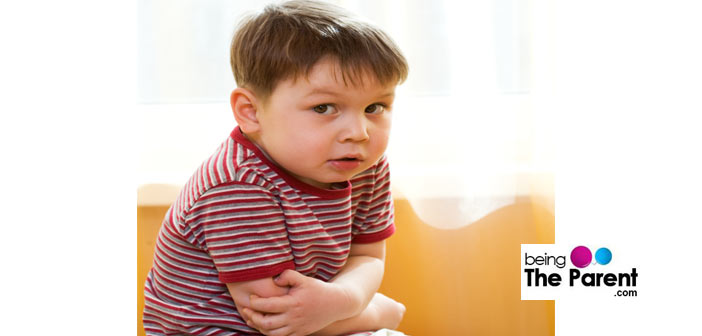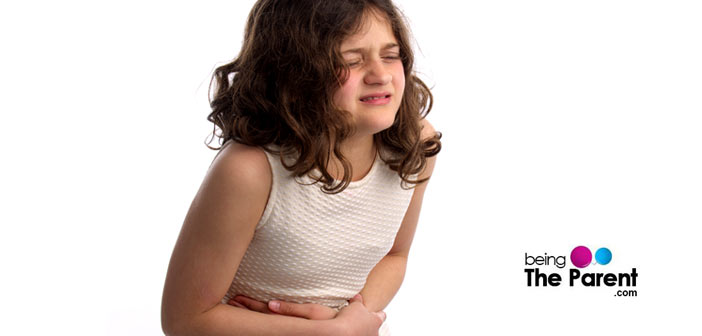
The last time you worried about UTI or a Urinary Tract Infection would have been when you were pregnant and your gynecologist told you that statistically you were more susceptible to catch a UTI. Whether you went through it or not, it does sound like a scary thing for your kid to get, especially since it is not so uncommon – about 8% of girls and 2% of boys can get it before they turn 5.
UTI as such can be easily treated; but if left untreated, it can lead to other serious problems, which is why it is absolutely essential you identify it in your kid sooner than later. A urinary tract infection left untreated can even cause a kidney damage in kids less than 6 years of age.
What Is A Urinary Tract Infection Or UTI?
UTI is a bacterial infection that affects the urinary tract. A quick recollection of high school biology would remind you that urinary tract includes:
- Kidneys: that filter blood and produces urine
- Ureters: that carry urine from the kidneys to the bladder
- Bladder: where urine is stored till your body passes it
- Urethra: that connects the urinary bladder to the outside of the body
The infection in bladder and urethra is more common and harmless – it is called cystitis. The infection in ureters and kidneys is less common and more serious – it is called pyelonephritis.
What Causes Urinary Tract Infection In Kids?
In normal conditions,your baby’s urinary tract is infection-free and the urine is germ-free. This is, however, not the case with the large intestine. There are a large number of bacteria present in the large intestine and consequently in your baby’s stool. This means that the skin around your baby’s anus usually has these bacteria present. At times, these bacteria enter the urinary tract through urethra and reach the bladder where it multiplies. This causes the infection in most cases.This is why UTI is more common in girls – their urethra is shorter in length and closer to anus. Boys younger than 1 year also are slightly more vulnerable to UTIs.
In rare cases, however, bacteria in blood might also enter the urinary tract through kidneys. While bacteria is the predominant cause of UTI, there have been few instances of virus causing UTI as well.
In addition to these, UTI can also be caused by some structural problems in your baby’s urinary tract, such as Vesicoureteral Reflux (this is mostly a birth defect that causes urine to flow back up the ureters into the kidneys) or blockages in the tract. A poor toilet hygiene, or a family history of UTI’s also make children more susceptible to developing urinary tract infections.

What Are The Symptoms Of Urinary Tract Infection In Children?
In toddlers, UTI is especially difficult to detect as in most cases fever is the only symptom. This is why doctors normally ask for a urine culture when your toddler has persistent fever. Babies will generally be cranky, feeling irritable, and may not want to feed. A vmit or two can also be a sign of a UTI.
For older kids, and some toddlers, there might be more symptoms, such as:
- Urine that is bloody, cloudy and/or foul-smelling. Sometimes the urine could have blood in it
- Burning/ itchiness/ pain when passing urine
- Frequent urination
- Wetting accidents, despite the fact that the baby is toilet trained
- Any other general illness, including but not limited to nausea, loss of appetite, tummy ache and lethargy
In some cases, your child might show no symptoms at all.
How To Prevent Urinary Tract Infection In Kids
When it comes to infants and toddlers, the best way would be to change the diapers frequently. If your child is toilet trained, ensure that he or she follows a good toilet hygiene. Whether infants or toddlers, everyone must be told to wipe from front to rear, and never from rear to front after defecating. Also, tell your kids not to hold the urge to pee as this gives more time to bacteria to spread and multiply.
If there are no structural problems in the urinary tract that is causing a reflux or an obstruction in the passage, then UTI is most likely caused because of:
- Constipation
- Not cleaning properly after defecation
- Not urinating fully each time
Preventing Urinary Tract Infection In Children Due To Common Reasons
-
- To avoid constipation –
- Ensure your child drinks a lot of water and fluids
- Encourage your child to have more fruits, vegetables and other fiber-rich food
- To avoid constipation –

- To ensure proper cleanliness of genital area –
- Teach your child to clean the genital area by wiping from front to back (and not back to front) to reduce the spread of bacteria from anus to urinary tract
- Avoid frequent bubble baths
- Avoid tight-fitting underpants / clothes
- In toddlers, make sure you change the diapers often. Change immediately after passing stool
- To ensure complete urination –
- Again, keep the fluid-intake high as this will result in more frequent toilet trips
- Encourage the child to pass urine fully (till the bladder is empty) each time they go to the toilet
How Will The Doctor Diagnose A Urinary Tract Infection?
If your baby’s doctor suspects UTI, he/she would ask you to collect a “clean” urine sample and send it for urine analysis and culture. Getting a “clean” sample that is not contaminated by the bacteria in the skin around the genital area is important. This is because, if more than one bacteria is present, it would be difficult to identify the one that is causing the UTI as opposed to the ones that entered the sample from skin. For this reason, make sure to wipe the baby’s genital area clean before collecting the sample. This can be quite a feat when collecting sample from baby girls.
There are other ways to collect a clean sample of urine – such as using a catheter or direct needle extraction – both of these are not commonly employed.
Once a UTI is confirmed, your baby’s doctor might want to do further investigations (e.g. ultrasound) to rule out any structural problems with your baby’s urinary tract.
How Will A UTI Be Treated?
All UTIs need to be medically treated
As mentioned above, your baby’s doctor would detect the bacteria that is causing the infection and prescribe an antibiotic to kill the infection.In some cases, doctors might advise hospitalization. This is when the child has high fever or dehydration or if a kidney infection is suspected. The doctor would also advise you to get your child admitted if the baby is very small (<6 months).
If your child has been diagnosed with other defects in the tract that is causing the UTI, like an obstruction or blockage, the doctor might suggest a surgery to correct it.
If your child has Vesicoureteral Reflux, your doctor might either suggest a surgery or put the baby on low dose antibiotics till he/she outgrows the condition (usually by age 6).

How Long Does A Urinary Tract Infection Last In Children?
Once the treatment begins, the symptoms, if any, would start disappearing very fast and your kid would be infection-free in a week. However, it is very important to complete the course of the antibiotics prescribed, even if the child gets better in few days. This will help prevent an immediate recurrence.
Is Urinary Tract Infection Recurrent In Nature?
Recurrences or repeat infections can also be prevented by following the recommendations mentioned above.
When Should You Call The Doctor?
Since medically treatment for UTIs should not be delayed, call the doctor if you notice any of the symptoms mentioned in the previous section, especially fever with chills, lower abdominal pain and unusual-looking urine.
